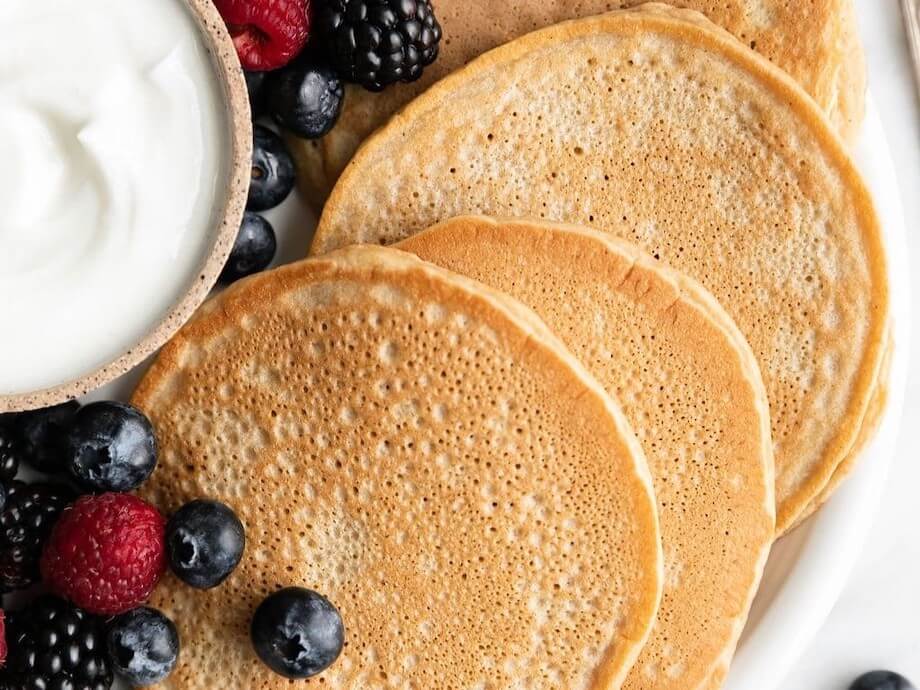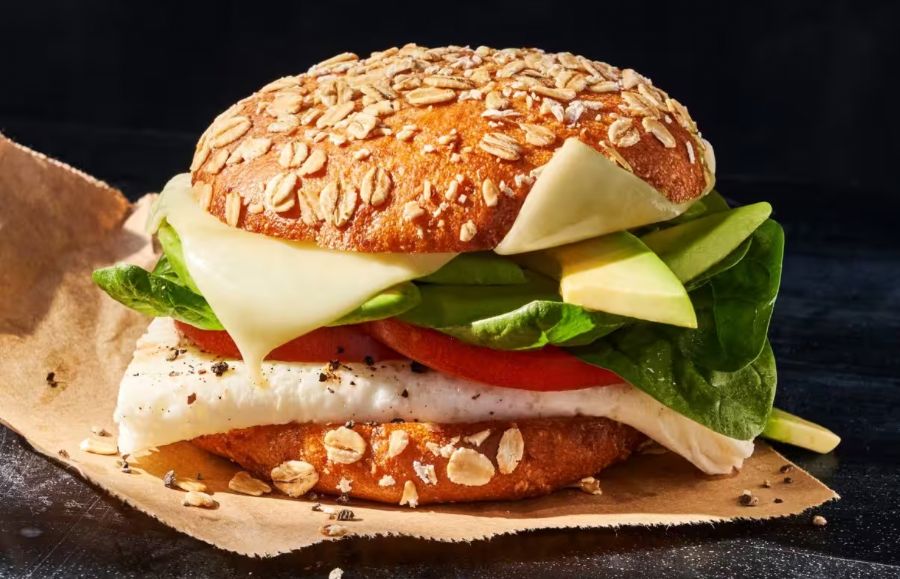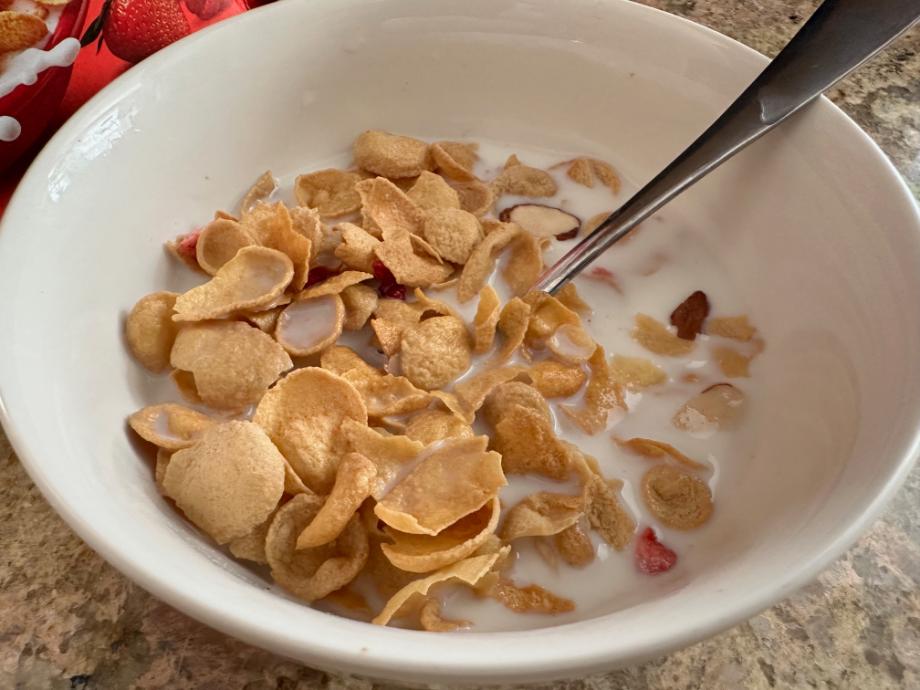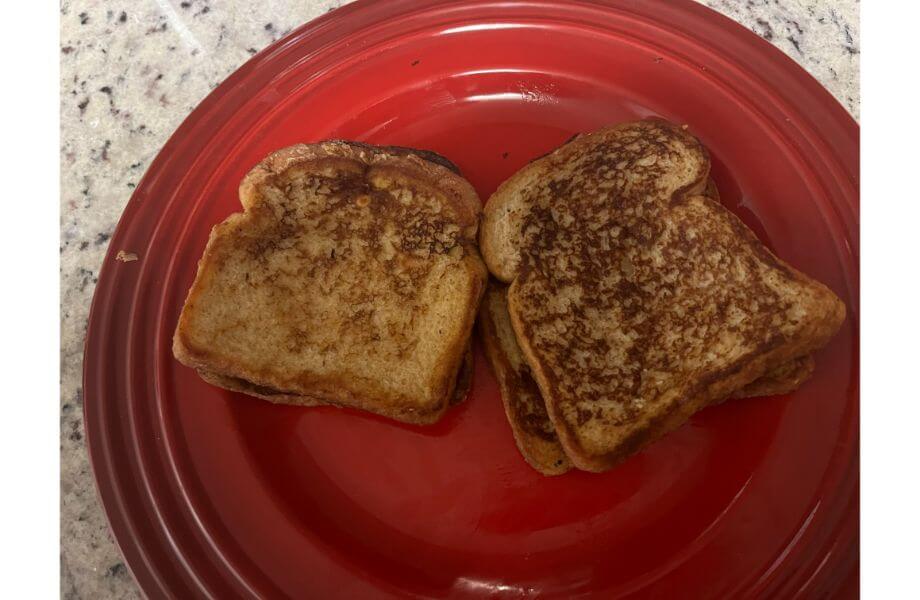We test and review fitness products based on an independent, multi-point methodology. If you use our links to purchase something, we may earn a commission. Read our disclosures.
With all the buzz around diets like the egg diet and the carnivore diet, we’ve almost forgotten about gluten-free diets that are just as popular. But what is gluten? It can’t be isolated to just one group of foods as it is often concentrated and added to a variety of foods, thus making its identification even more difficult as you navigate your diet.
RELATED: Best Gluten-Free Meal Delivery Services
However, if you’ve been thinking about avoiding gluten or are following a gluten-free diet at the moment, it’s a pretty fair bet that you don’t need to. To understand why, though, you need to understand what gluten is, what it does to your body, and what happens to people who actually can protect their health on a strict gluten-free diet.
What Is Gluten?
Gluten is a protein found in wheat, rye, barley, and some other carbohydrates that contain grains. However, it can also be isolated and extracted, then added to other foods for various culinary purposes.
What Does Gluten Do?
As a result of their elastic properties, gluten proteins allow foods to rise and retain moisture by stretching and trapping gas.
Food like bread dough can become stretchy due to gluten’s physical properties, making it softer and chewier. Gluten makes the noodles in your pasta nice and bouncy. It’s also a baker’s greatest tool, as it assists in making baked goods rise properly in the oven.

The act of kneading and mixing dough helps to create more gluten to make it nice and elastic thanks to two components of gluten known as glutenin and gliadin. The glutenin helps make dough stretchy, while the gliadin helps it retain its shape, which is why kneading dough properly is critical in the art of baking.
We’ll talk more about this later, but gluten can also be used in non-grain foods to thicken them or give them extra color and flavor. For now, it’s super important to note that, despite gluten being associated with inflammation and processed foods, it’s a naturally occurring protein.
What Foods Contain Gluten?
Though gluten naturally occurs in wheat and other grains, you may be surprised at which other foods can also be sources of gluten. Let’s take a look.
RELATED: Best Carbs for Bodybuilding
Wheat and Grains
The most common gluten-containing foods are wheat products. The most prevalent sources are the following:
- Wheat
- Rye
- Barley
- Semolina
- Farro
- Couscous
- Triticale
- Farina
- Kamut
- Spelt
- Oats*
This means most breads, wraps, tortillas, graham crackers, and other flour-containing foods have gluten. This also includes baked goods including cakes, cookies, doughnuts, and pancakes. However, it does not include products made from alternative flours like coconut, rice, corn, and almond flour, which aren’t made from wheat and thus don’t contain gluten.

Oats have an asterisk because they are technically among the whole grains that can be included in a gluten-free diet, but nowadays are commonly vulnerable to cross-contamination.
This is because many factories that produce oats also produce wheat products, and the oats are often mechanically separated using the same machine as gluten-containing grains. So, if you have gluten intolerance or celiac disease, look for a gluten-free label on your oats.
RELATED: How Much Protein Is In Oatmeal?
The Food and Drug Administration (FDA) is serious about the food labeling of supposedly gluten-free foods to protect those on a strict gluten-free diet from a potentially life-threatening illness. If a product says it is “certified gluten-free,” it’s generally recognized as safe for those with the food allergy.
Finally, you should know that there are gluten-free grains. Quinoa is the most common one, as it is technically a seed. Other gluten-free grains include amaranth, buckwheat, millet, rice, and teff.
Certain Drinks
Gluten is also in several beverages, including the following:
- Beer
- Malt drinks and vinegar
- Cocktail mixers
- Some liqueurs
This is bad news if you’re a gluten-avoiding partyer. However, spirits and most hard seltzers are usually free of gluten.
Processed Foods
Examples of processed foods that contain gluten include:
- Instant pudding
- Breakfast cereal
- Most fried foods
- Processed cheese
- Canned soups
- Some meat substitutes
Gluten is typically added to these foods as a stabilizer or flavor enhancer in foods that act as a substitute for other foods. For example, vegan cheese can contain wheat flour.

Sauces and Condiments
Gluten is also in several popular sauces and condiments, including:
- Soy sauce
- Teriyaki sauce
- Salad dressings
- Gravy mix
- BBQ sauce
- Marinades
Soy sauce is one of the most prevalent but surprising sources of gluten on this list. It’s traditionally made by fermenting legumes and combining them with wheat to create the brine we know and love on our sushi and other Asian dishes.
If you want to fit soy sauce into a gluten-free diet, look for tamari, a very similar variation made only from legumes. Coconut aminos are also emerging in popularity as a comparable substitute.
RELATED: How to Find the Best Protein Powder
Some supplements may also contain gluten that’s not included on the label. Food labeling rules from the FDA don’t apply to supplements, and wacky ingredients like wheat flour and other starches can be in some of these powdered products.
Is Gluten Bad for You?
“Inflammation” is a word you’ll hear over and over in conversations about how bad gluten supposedly is for you and your small intestine. There are claims that it causes an immune response in your gut that leads to inflammation, damaging your entire body and causing chronic disease.
How did the fear around this naturally occurring protein begin? In 2011, a small study published in the American Journal of Gastroenterology1 posited that gluten can make people sick even if they didn’t have celiac disease, resulting in a condition dubbed “non-celiac gluten intolerance.”
The authors emphasized that the subjects experienced no change in antibodies, meaning there was no significant immune response to signify illness. The symptoms were mainly self-reported by the subjects. In other words, more research was needed. However, the media got a hold of these results and went into a frenzy anyway.
RELATED: How To Detox Your Body Safely
It was around this time we started to see an explosion in the availability of gluten-free products. It’s a tale as old as time: Begin to label foods as free of a certain ingredient, and suddenly everyone assumes that ingredient must be avoided for health reasons. It happened with MSG and it happened with fat-free foods. Gluten is just the latest victim.

Further research2 from the same journal and authors showed that the reported gastrointestinal symptoms from the previous study were partly due to a placebo effect. Researchers came to this conclusion when subjects who were convinced they had non-celiac gluten sensitivity reported no symptoms after eating gluten unless they were explicitly told they were eating it.
The study concluded that the unpleasant gastrointestinal symptoms the subjects felt were more likely due to the gluten-containing foods also being rich in carbohydrates called FODMAPS. Without getting too technical, FODMAPS are essentially fibers the small intestine doesn’t absorb well, as our bodies simply don’t have the appropriate enzymes.
FODMAPS are in many wheat products, but are also present in foods that don’t contain gluten proteins, like legumes, apples, asparagus, and dairy. When these compounds don’t break down the way they should in the small intestine, they pass only partially digested to the large intestine.
Without the right enzymes in the large intestine, it’s up to bacteria to get to work trying to ferment them. This often causes cramps, bloating, and abdominal pain—all the symptoms commonly reported by those who have gluten intolerance. This isn’t just conjecture. Other studies3 have confirmed that people mistake a FODMAP sensitivity for gluten intolerance more often than they think.
RELATED: Digestive Enzymes Guide
The 2013 study from the American Journal of Gastroenterology2 also found that symptoms improved in those who previously thought they were sensitive to gluten when they consumed fewer FODMAP grains, even if those grains contained gluten. However, figuring out which FODMAPs you’re sensitive to can be tricky, since people rarely eat these foods in isolation. If you think you may be sensitive, a registered dietitian can help identify your triggers.
So, to put it simply, gluten is not inherently bad for you. Gluten proteins occur naturally in foods and aren’t poisonous or inherently inflammatory, according to the research cited above, and pose no threat to healthy individuals.
Should You Avoid Gluten?
Recent research4 has shown that 20% of Americans actively work to cut gluten from their diets for various reasons, including the belief that a gluten-free diet is healthier, more nutritious, and can help clear up acne. However, these findings primarily came from personal research.
These misconceptions are almost always extrapolated from people with celiac disease who should actually avoid gluten. You should also avoid gluten if you have a wheat allergy or irritable bowel syndrome (IBS). But how does this happen? And what happens if you have one of these conditions and eat gluten?
RELATED: Best Protein Powder for Sensitive Stomachs
Other studies5 have shown that gliadin (a gluten protein) causes a variety of symptoms in those with a diagnosed intolerance to gluten, including excess gas, bloating, headaches, diarrhea, constipation, abdominal pain, fatigue, and even brain fog. These are also the symptoms of celiac disease, with some who have the condition even reporting skin rash.
If you have celiac disease, you should avoid gluten altogether. The consequences of not doing so can cause serious health problems. When an individual with celiac disease consumes gluten, an immune response causes the body to attack its own intestinal cells, a defining characteristic of an autoimmune disorder in which the body’s immune system mistakes its own cells for foreign cells.
When this happens, the intestines become inflamed, damaged, and less capable of absorbing nutrients. This can cause sudden weight loss, malnutrition, severe illness, and even death. It also causes the individual extreme pain. Luckily, if you have celiac disease, you’ll almost certainly know because only 1%6 of the population has it.
If you think you may have celiac disease, it’s a good idea to get medical advice from a gastroenterologist or dietitian. Celiac disease is normally diagnosed by a blood test for certain antibodies or a biopsy, which involves taking a tiny piece of your intestinal tissue and testing it for signs of damage from gluten. In most cases, your doctor will run a combination of tests since false negatives from blood tests alone are quite common.
RELATED: Glutamine Supplements: Is This Amino Acid Powder Worth Stomaching?
However, there is no test for non-celiac gluten sensitivity. Such a condition is usually diagnosed by the screening of a gastroenterologist. They may look at blood work but will mainly look at the corresponding symptoms that are similar to celiac disease, just not as severe or damaging.
Finally, if you have a food allergy to wheat, you may not need to eliminate gluten altogether. A wheat allergy means a reaction can occur to gluten as well as other wheat proteins like albumin and globulin. However, wheat allergies in America are very rare7.
What Is Gluten: Final Thoughts
The vast majority of people following a gluten-free diet don’t need to. However, we certainly don’t want to discredit those who get legitimately unpleasant symptoms after eating gluten-containing grains. If this is you, seek medical advice from your primary care provider to screen for a form of IBS, a sensitivity to FODMAPS, or full-blown celiac disease.
If you are still having symptoms once these things are ruled out, it can be safe to conclude they are either a placebo effect or other aspects of your diet are upsetting your tummy. A diet high in carbohydrates or fried foods that may contain gluten but have very few nutrients can cause fatigue, stomach discomfort, and inflammation. Many may mistakenly blame these symptoms on gluten.
RELATED: Best Probiotic Supplements
All in all, though, gluten-free food products are expensive and often not as palatable as gluten-containing ones. Furthermore, avoiding whole grains because they have gluten can result in one cutting out perfectly nutritious foods for no reason. To that end, if you are healthy, eat your gluten. It’s okay.
What Is Gluten: FAQs
What is gluten and why is it bad for me?
Gluten is a naturally occurring protein present in wheat flour and other wheat products. However, unless you have celiac disease, gluten sensitivity, or a wheat allergy, gluten is not inherently bad for you.
What does gluten do to your body?
According to research, gluten has no adverse effects on the body if you do not have IBS or an allergy to FODMAPS or wheat.
Which foods are high in gluten?
Food products that are high in gluten tend to be grains (with some exceptions), along with certain alcoholic beverages, condiments, and processed foods.
Why is gluten bad for your gut?
In healthy individuals, gluten is not bad for the gut. However, in those sensitive to the protein, it can cause inflammation severe enough to damage the intestinal lining.
References
- Biesiekierski, J. R., Newnham, E. D., Irving, P. M., Barrett, J. S., Haines, M., Doecke, J. D., Shepherd, S. J., Muir, J. G., & Gibson, P. R. (2011). Gluten causes gastrointestinal symptoms in subjects without celiac disease: a double-blind randomized placebo-controlled trial. The American journal of gastroenterology, 106(3), 508–515. https://doi.org/10.1038/ajg.2010.487
- Biesiekierski, J. R., Peters, S. L., Newnham, E. D., Rosella, O., Muir, J. G., & Gibson, P. R. (2013). No effects of gluten in patients with self-reported non-celiac gluten sensitivity after dietary reduction of fermentable, poorly absorbed, short-chain carbohydrates. Gastroenterology, 145(2), 320–8.e83. https://doi.org/10.1053/j.gastro.2013.04.051
- Nijeboer, P., Bontkes, H. J., Mulder, C. J., & Bouma, G. (2013). Non-celiac gluten sensitivity. Is it in the gluten or the grain?. Journal of gastrointestinal and liver diseases : JGLD, 22(4), 435–440.
- Arslain, K., Gustafson, C. R., Baishya, P., & Rose, D. J. (2021). Determinants of gluten-free diet adoption among individuals without celiac disease or non-celiac gluten sensitivity. Appetite, 156, 104958. https://doi.org/10.1016/j.appet.2020.104958
- Mingomataj, E. Ç., Gjata, E., Bakiri, A., Xhixha, F., Hyso, E., & Ibranji, A. (2011). Gliadin allergy manifested with chronic urticaria, headache and amenorrhea. BMJ case reports, 2011, bcr1020114907. https://doi.org/10.1136/bcr.10.2011.4907
- Bizzaro, N., Tozzoli, R., Villalta, D., Fabris, M., & Tonutti, E. (2012). Cutting-edge issues in celiac disease and in gluten intolerance. Clinical reviews in allergy & immunology, 42(3), 279–287. https://doi.org/10.1007/s12016-010-8223-1
- Zuidmeer, L., Goldhahn, K., Rona, R. J., Gislason, D., Madsen, C., Summers, C., Sodergren, E., Dahlstrom, J., Lindner, T., Sigurdardottir, S. T., McBride, D., & Keil, T. (2008). The prevalence of plant food allergies: a systematic review. The Journal of allergy and clinical immunology, 121(5), 1210–1218.e4. https://doi.org/10.1016/j.jaci.2008.02.019
Further reading

If you’re wondering about the best health coaching programs to start or further your career in wellness, read our guide written by a certified health coach. Read more

A sports dietitian discusses protein powder alternatives that can be used to help active individuals reach their protein goals without a shaker bottle. Read more

In our Noom review, get a glimpse at what it’s like to use the service, and how it could—or could not—work for you. Read more

Looking for the best exercise bike for your home gym? We give our thoughts on the different types, and who should buy which. Read more






